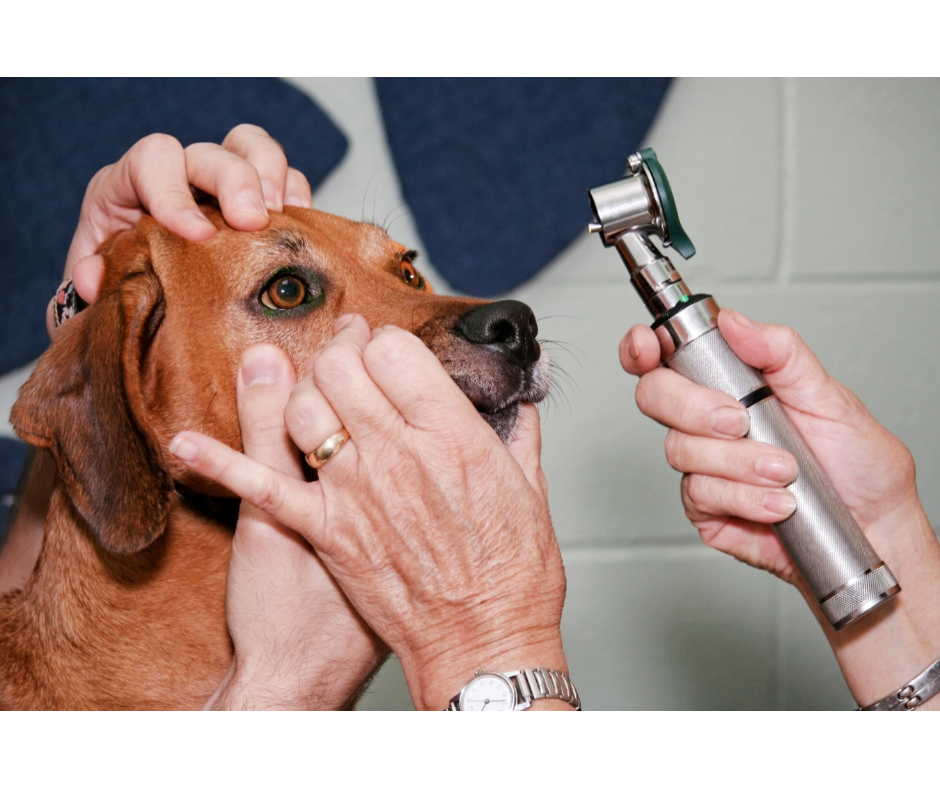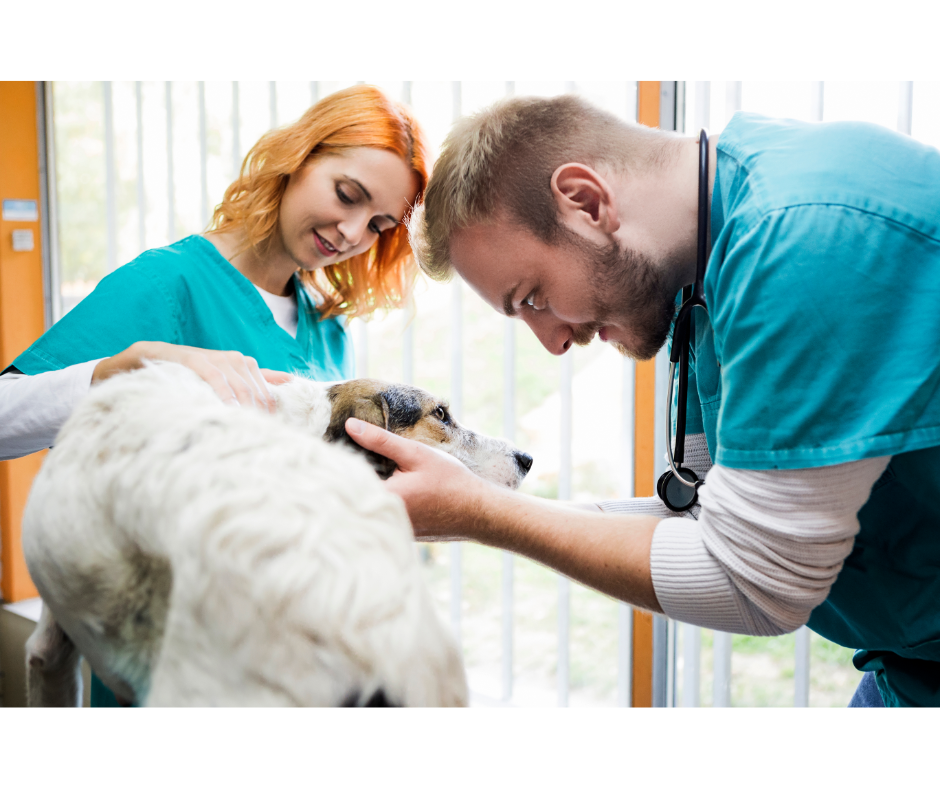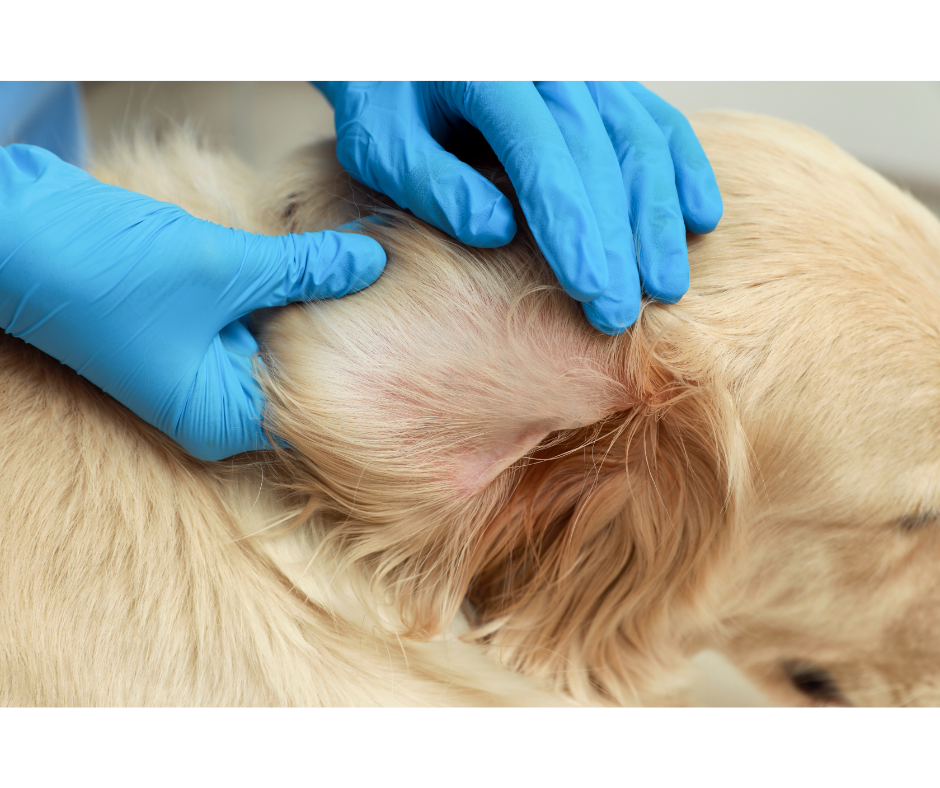Have you ever wondered if dogs can have allergies just like humans? Well, the answer is yes! Just like us, our furry friends can experience allergic reactions to certain substances in their environment, such as pollen, dust mites, or certain foods. In fact, dogs can have a wide range of allergies, and their symptoms can vary from mild to severe. So, if you’ve noticed your dog constantly scratching, sneezing, or having recurrent ear infections, it might be worth exploring the possibility of allergies.

Overview
What are allergies?
Allergies are a common immune-mediated response to certain substances known as allergens. When a dog with allergies comes into contact with an allergen, their immune system overreacts, causing symptoms and discomfort. Just like humans, dogs can develop allergies to a variety of substances, including environmental allergens, certain foods, fleas, and contact allergens.
Common types of allergies in dogs
Dogs can experience different types of allergies, with environmental allergies, food allergies, flea allergies, and contact allergies being the most common. Environmental allergies, also known as atopic dermatitis, occur when a dog inhales or comes into contact with allergens such as pollen, dust mites, or mold spores. Food allergies, on the other hand, are caused by an adverse reaction to specific ingredients in the dog’s diet. Flea allergies result from an allergic reaction to flea saliva, which can cause intense itching and discomfort. Contact allergies occur when a dog’s skin reacts to certain substances in their environment, such as certain plants, fabrics, or cleaning products.
Signs and symptoms of allergies in dogs
Allergies in dogs often manifest through various signs and symptoms. Common symptoms include excessive itching, sneezing, coughing, watery eyes, nasal congestion, skin rashes, hives, hair loss, ear infections, and gastrointestinal issues like vomiting or diarrhea. Some dogs may also exhibit behavioral changes or become lethargic due to the discomfort caused by their allergies. It is important to recognize these signs early on and seek appropriate veterinary care to ensure the well-being of your furry friend.
Causes
Environmental allergens
Environmental allergens are one of the leading causes of allergies in dogs. These include airborne substances like pollen, grass, mold spores, dust mites, and even certain types of fungi. When a dog with a predisposition to allergies comes into contact with these allergens, their immune system triggers an inflammatory response, resulting in the classic allergy symptoms seen in dogs.
Food allergies
Food allergies can develop when a dog’s immune system reacts negatively to specific ingredients in their diet. Common food allergens for dogs include proteins such as chicken, beef, dairy products, wheat, soy, and eggs. It is important to note that food intolerances are different from food allergies, as intolerances do not involve the immune system. Food allergies can cause a range of symptoms like itching, gastrointestinal upset, and skin irritations.
Flea allergies
Some dogs may develop an allergic reaction to flea bites, known as flea allergy dermatitis. This occurs when a dog’s immune system overreacts to the saliva of fleas. Even a single flea bite can trigger intense itching and discomfort in dogs with a flea allergy. Preventing fleas through regular flea control measures is crucial for managing and preventing this type of allergy.
Contact allergies
Contact allergies in dogs occur when their skin comes into contact with substances that elicit an allergic reaction. Common contact allergens include certain plants, grasses, fabrics, cleaning products, and certain metals like nickel. Dogs with contact allergies may develop rashes, hives, or skin irritation in the areas that come into contact with the allergic substances.
Diagnosis
Veterinary examination
When you suspect that your dog may have allergies, it is important to consult with a veterinarian for a proper diagnosis. The veterinarian will perform a thorough examination of your dog’s skin, coat, and overall health. They will inquire about your dog’s medical history and discuss the symptoms you have observed. A detailed understanding of your dog’s history and symptoms will help the veterinarian narrow down the potential causes of the allergies.
Skin and blood tests
To confirm the presence of allergies and identify the specific allergens, a veterinarian may recommend skin and blood tests. Skin tests involve exposing your dog’s skin to small amounts of various allergens and observing the reaction. Blood tests, on the other hand, measure the levels of specific antibodies that indicate an allergic response. These tests can help determine the specific allergens triggering your dog’s allergies, allowing for targeted treatment options.
Elimination diet trials
In cases where food allergies are suspected, an elimination diet trial may be conducted. This involves feeding your dog a diet consisting of novel protein sources and carbohydrates that they have not been exposed to before. By gradually reintroducing potential allergens, the veterinarian can observe any adverse reactions and identify specific food allergies. Elimination diet trials require strict adherence and close monitoring under veterinary guidance.
Treatment
Avoidance of allergens
One of the primary approaches to managing allergies in dogs is to avoid exposure to the identified allergens as much as possible. This may involve making changes to your dog’s environment, such as using air purifiers, vacuuming frequently, and keeping them away from known allergens like pollen or dust. Ensuring a clean and allergen-free living space can help minimize the frequency and severity of allergic reactions.
Medication options
Various medications can be prescribed to alleviate the symptoms of allergies and provide relief for your dog. Antihistamines can help reduce itchiness and inflammation, while corticosteroids may be used for more severe allergic reactions. Topical treatments like medicated shampoos or sprays can provide relief for skin-related symptoms. In some cases, antibiotics or antifungal medications may be necessary if secondary infections have developed. It is important to follow the veterinarian’s instructions and dosage guidelines when administering medications to your dog.
Immunotherapy
Immunotherapy, also known as allergy shots, can be an effective long-term treatment for dogs with allergies. This involves injecting small amounts of the identified allergens into the dog’s body over time, gradually desensitizing their immune system to the allergens. Immunotherapy aims to modify the dog’s immune response, reducing the severity and frequency of allergic reactions. It is a long-term commitment that requires regular veterinary visits and close monitoring.
Alternative treatments
In addition to conventional treatments, some dog owners may explore alternative therapies for managing their dog’s allergies. These can include herbal remedies, acupuncture, and dietary supplements. While some alternative treatments may provide additional support, it is essential to consult with a veterinarian before trying any alternative therapies. They can guide you on the safety and efficacy of these treatments in conjunction with conventional approaches.

Management
Grooming and hygiene
Regular grooming and hygiene practices are essential for managing allergies in dogs. Bathing your dog with a hypoallergenic shampoo can help remove allergens from their skin and coat. A veterinarian may recommend specific grooming products suitable for dogs with allergies. Additionally, keeping your dog’s ears clean and free from moisture can help prevent ear infections, which are common in dogs with allergies. Brushing your dog’s coat regularly can also help remove allergens and prevent matting or skin irritation.
Reducing exposure to allergens
To minimize your dog’s exposure to allergens, it is important to identify and reduce their presence in your dog’s environment. This can include keeping windows closed during peak pollen seasons, using allergen-proof bedding, and avoiding contact with known triggers. Regular vacuuming, dusting, and cleaning can help remove allergens from your home. Additionally, consider avoiding walking your dog during times when pollen or other environmental allergens are at their peak.
Dietary considerations
In cases of food allergies, switching to a hypoallergenic or limited-ingredient diet may be necessary. These specialized diets remove common allergens and provide a balanced nutritional profile for your dog. It is important to carefully read and understand the ingredient labels on dog food to ensure you are selecting an appropriate diet for your allergic dog. Working closely with a veterinarian or veterinary nutritionist can help determine the best dietary approach for managing your dog’s food allergies.
Prevention
Early exposure to potential allergens
Exposing puppies to a wide range of potential allergens early in life may help reduce the likelihood of developing allergies later on. This can include introducing them to different environments, plants, and foods gradually, allowing their immune systems to develop tolerance. While it is not a foolproof prevention method, early exposure may contribute to a more robust immune system.
Proper nutrition
Providing your dog with a balanced and nutritious diet plays a crucial role in overall health and immune function. Opt for high-quality dog foods that meet your dog’s specific nutritional needs. Adequate levels of essential fatty acids, vitamins, and minerals can support a strong immune system, potentially reducing the risk of allergies. Consult with a veterinarian for recommendations on the most suitable diet for your dog’s breed, age, and health condition.
Regular veterinary care
Regular veterinary check-ups are essential for maintaining your dog’s overall health and well-being. Routine examinations allow veterinarians to identify any potential allergies or health conditions early on. They can provide guidance on preventive measures, recommend appropriate vaccinations, and address any concerns you may have regarding your dog’s allergies. Regular veterinary care can help optimize your dog’s quality of life and minimize the impact of allergies.

Allergies vs. other health conditions
Distinguishing allergies from other conditions
Allergies in dogs can sometimes be mistaken for other health conditions, making it important to distinguish between them. For example, skin conditions caused by parasites like fleas or mites may present similar symptoms to allergies. It is crucial to consult with a veterinarian for an accurate diagnosis to ensure appropriate treatment. With proper examination and diagnostic tests, veterinarians can differentiate between allergies and other conditions.
Comorbidities and allergies
Dogs with allergies may also be prone to developing comorbidities, which are other health conditions that can occur alongside allergies. For example, dogs with allergies may be more susceptible to developing secondary skin infections due to constant itching and scratching. Itchy ears may lead to ear infections, and gastrointestinal upset can result in dietary sensitivities or inflammatory bowel disease. Detecting and managing comorbidities is an important aspect of overall allergy management to ensure your dog’s well-being.
Breeds prone to allergies
Common allergic breeds
While allergies can affect any dog breed, certain breeds are more prone to developing allergies. Breeds such as Retrievers, Bulldogs, Boxers, Terriers, and German Shepherds tend to have a higher risk of allergies. This increased susceptibility may be due to genetic factors, breed-specific traits, or inherited predispositions. Identifying your dog’s breed-specific risks can help you better understand the potential for allergies and take appropriate preventive measures.
Specific allergies in certain breeds
In addition to general allergies, certain breeds may be more susceptible to specific allergies. For example, Shar-Peis are known to be prone to developing food allergies and skin problems. Bulldogs may be predisposed to environmental allergies, while West Highland White Terriers are more likely to develop atopic dermatitis. Being aware of breed-specific risks can help you monitor and manage allergies more effectively in your dog.
Allergies in puppies
Allergies in young dogs
While allergies are commonly associated with adult dogs, puppies can also develop allergies. Allergies can start to manifest as early as a few months of age. Puppies may exhibit similar signs and symptoms as adult dogs, including itching, rashes, gastrointestinal issues, and respiratory problems. It is crucial to consult with a veterinarian if you suspect your puppy has allergies, as early intervention and proper management can significantly impact their quality of life as they grow.
Impact on growth and development
Allergies in puppies can have an impact on their growth and development. Constant itching and discomfort can lead to poor appetite, weight loss, and reduced activity levels. In severe cases, allergies can hinder normal growth and delay the puppy’s development. Early diagnosis and appropriate treatment, including dietary adjustments and lifestyle modifications, play a vital role in minimizing the impact of allergies on the puppy’s growth and overall well-being.
Living with an allergic dog
Understanding and empathizing
Living with an allergic dog requires understanding and empathy. Allergies can be a chronic condition that affects your dog’s comfort and quality of life. It is important to educate yourself on your dog’s specific allergies, triggers, and management options. Being aware of the signs and symptoms, and recognizing when your dog is experiencing discomfort, allows you to provide the necessary support and care they need.
Creating a safe and comfortable environment
Creating a safe and comfortable environment for your allergic dog is crucial. Minimize exposure to known allergens, keep their living space clean, and provide a designated area for them to relax without potential irritants. Regular grooming, such as bathing and brushing, can help remove allergens from your dog’s coat. Additionally, ensure your dog has access to fresh water, quality food suitable for their allergies, and a comfortable resting place to promote their well-being.
Living with an allergic dog may require adjustments to your routine and additional veterinary care, but with proper management and support, you can help your dog lead a fulfilling and comfortable life, despite their allergies. Remember to consult with your veterinarian for personalized advice and guidance based on your dog’s specific needs.

